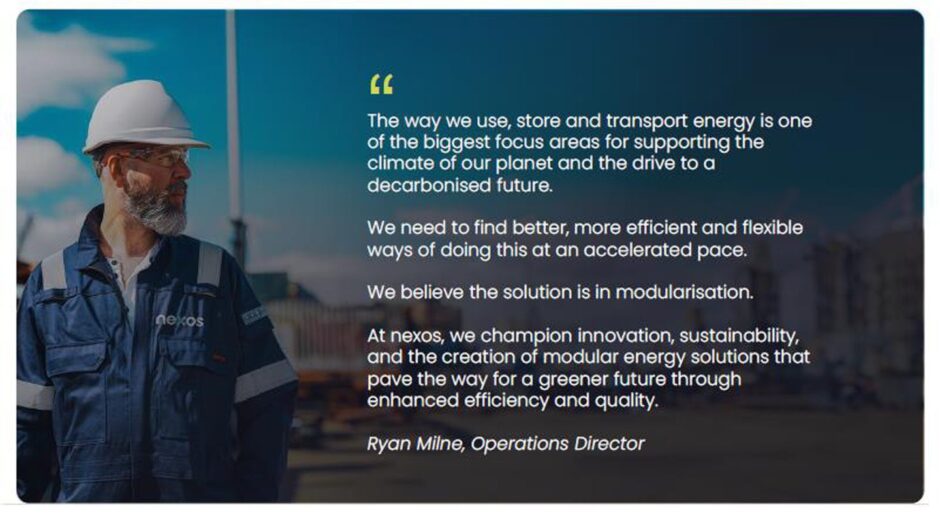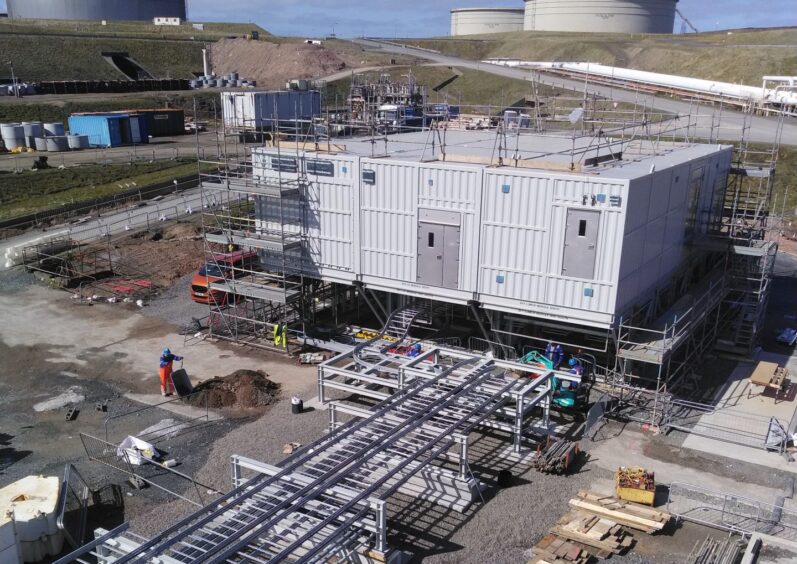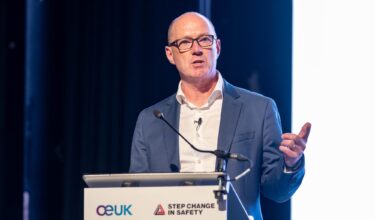Why modular solutions are the smarter, safer, more sustainable way to build
Energy Voice Feature with Nexos' Ryan Milne
In the ever-changing energy landscape, the design and execution of major infrastructure projects must also evolve. The traditional method of building onsite, piece by piece, battling weather, labour constraints and escalating costs has become outdated. But modular solutions may hold the answer.
Going modular can mean safer, more sustainable and cost effective solutions to infrastructure needs.
Nexos, a D2Zero company, is breaking the mould, proving that modular isn’t just an option, it’s the smarter way to build.
Ryan Milne, operations director – modular division at nexos, explains: “Modularisation is no longer a theoretical aspiration – it is a practical, powerful response to the demands of today’s project landscape. Deadlines are tighter. Budgets are under pressure. Stakeholders expect not only delivery, but excellence. Traditional, stick-built methods may have served their time, but they struggle to meet the speed, sustainability, and certainty now required.
“We’re delivering modularised substations, control rooms, utility skids, synthfuel facilities, and BESS solutions across the UK and beyond – onshore and offshore. Each project is a proof point that modular is not only viable, but vital.
“The future of energy infrastructure doesn’t lie in pouring concrete under grey skies or bolting panels in 50-knot winds. It lies in choosing a path of precision, predictability, and progress. Together, with our customers and partners, we are redefining what’s possible – and how quickly it can be achieved.”
Why Modular Wins

The advantages of going modular are manifold. They include:
Speed: Parallel off-site fabrication and on-site preparation can reduce timelines by up to 40%.
Quality: Built in controlled environments, modular solutions ensure consistency, compliance, and excellence. Factory settings reduce defects by up to 80%
Cost Predictability: Fewer delays, clearer scopes, and reduced rework protect both budgets and confidence. Industry research indicates that up to 30% of traditional project costs are caused by rework and inefficiency. Modularisation can cut this by half or more
Sustainability: Modular delivery means up to 90% less material waste, fewer emissions, and reduced logistics impacts
Flexibility: Modular solutions are designed for adaptation without compromise on performance or compliance
Space-Saving: They are ideal for brownfield or congested sites, with vertical integration and precise layout control.
Safety: With 60-80% less time on site means lower risk to personnel and safer working conditions overall.
A necessary transformation

In the current landscape getting ahead of the curve means embracing faster, safer, and more efficient ways to build. Modular delivery is proving its value both offshore and onshore.
Ryan adds: “The companies that succeed in the next decade won’t just be those who talk about innovation – they’ll be the ones who rethink how things get built.
“In a world where predictability, performance, and carbon footprint matter more than ever, modular isn’t just an option. It’s a necessity.
“We believe modularisation isn’t just a method…it’s a mindset; a mindset rooted in Industry 4.0 principles, where digital tools, data-driven design, and off-site manufacturing converge to deliver faster EPC, higher quality, lower carbon, and greater certainty.
“So if your project still relies on traditional stick-built methods, ask yourself: Are we setting ourselves up to deliver – or to delay?
“For Nexos, modular isn’t a trend. It’s the standard.”





